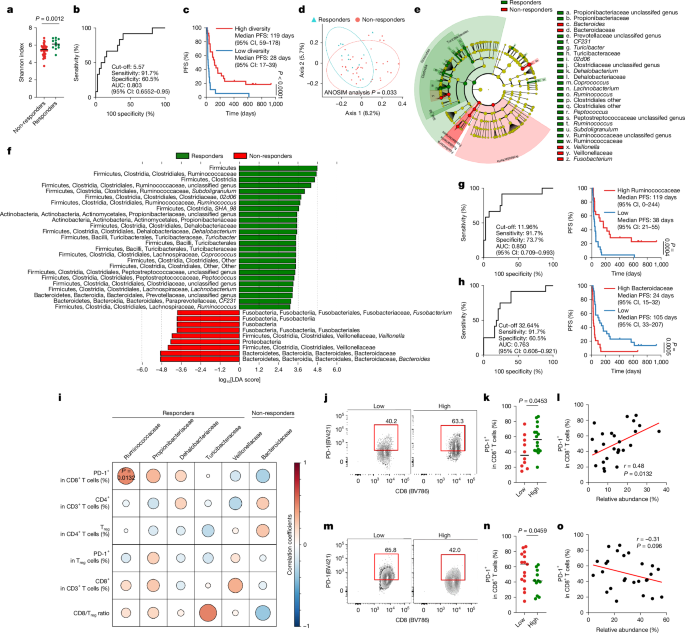
"Immune checkpoint blockade (ICB) therapies have improved survival rates in cancer patients, but low complete response rates necessitate the identification of predictive biomarkers and new strategies to overcome resistance."
"High ratios of PD-1+CD8+ T cells to PD-1+ regulatory T cells in the tumor microenvironment are associated with responsiveness to PD-1 and PD-L1 inhibitors."
"Certain gut microbiota, such as Ruminococcus spp. and Prevotellaceae spp., correlate with the clinical efficacy of ICB therapies through mechanisms involving immune cell activation."
"A newly identified bacterial strain, YB328, found in responders to PD-1 blockade therapies, enhances CD103+ dendritic cell differentiation essential for antigen cross-presentation."
Immune checkpoint blockade therapies using PD-1 and PD-L1 monoclonal antibodies have improved progression-free and overall survival in cancer patients, although complete response rates remain low. Predictive biomarkers for clinical efficacy and strategies to address resistance mechanisms are essential. High ratios of PD-1+CD8+ T cells to PD-1+ regulatory T cells indicate a favorable response to these therapies. Additionally, specific gut microbiota are linked to enhanced ICB efficacy potentially through mechanisms involving dendritic cell maturation and T cell activation. A new bacterial strain, YB328, was identified that supports CD103+ dendritic cell differentiation.
Read at Nature
Unable to calculate read time
Collection
[
|
...
]